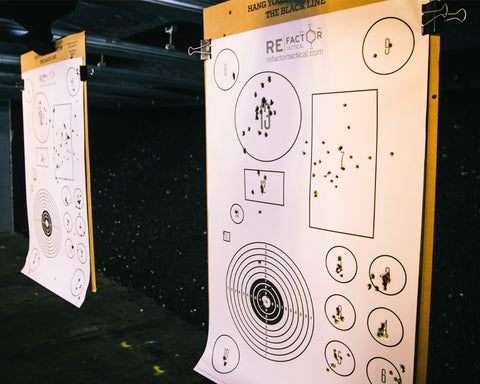If you’re serving in the military, you’ve probably dealt with rental agreements more than the average person. You’re constantly moving from one location to the next or being put on deployment orders. Sometimes, all that moving around can take its toll on your living situation. This is especially true if you have to up and leave when your lease isn’t quite up yet. Fortunately, there are federal laws, such as the Service-members Civil Relief Act (SCRA) to help protect you. Keep reading our Renter’s Guide for Service Members to learn more about the SCRA and how it can help you during your next move.

Renting an Apartment
Renting an apartment is fairly simple. You find a place you want to live, for the price you want, you sign a bunch of paperwork, have your credit checked, get rental insurance, pay some initial fees, and then you move in. But, as easy as that is, it doesn’t mean renting an apartment doesn’t come with its fair share of difficulties and things to watch out for.
Renting an apartment is similar to buying a car from a salesman. They don’t care what they have to do to get you inside, and they’re willing to sell you “top of the line”, or at least make it sound like that’s what you’ll be buying—until you actually move in. Then the next thing you know, the walls are paper-thin, the maintenance guy never comes around, the apartment manager is never in, you can’t get answers to even the simplest thing. And wait, are they charging you for parking now? That wasn’t in the lease! It just seems like you’ve found the perfect place, until after you’ve signed the lease. And suddenly all that sunshine and roses attitude is out the door and you’re stuck living with a less than stellar apartment. This is why it’s important to ask questions prior to making any written commitments.
Questions to ask when Renting an Apartment
Renting an apartment comes with fees. You might have started out with a $900/month lease, and the next thing you know you’re at nearly $1,200. Why is this? Because there are fees! Some apartments will roll your water bill, trash, and any other regular building maintenance into your bill. And if you don’t ask about these things before signing a lease, you’re likely to be surprised when your first month’s rent is due.
If you want to bring a pet into the apartment, that’s usually another fee too. Some apartments require an initial, non-refundable pet fee and a monthly pet fee on top of that. Oh, and don’t forget about parking! You might find free street parking, but some apartment complexes are more than willing to charge you extra each month just to park on their property. This is especially the case if you want garage parking.
With all this in mind, you might want to ask a few questions before making any final decision about which apartment you want to live in.
- What’s my total monthly bill going to be?
- Does that include utilities?
- What other fees am I paying?
- Do you have a refundable pet fee?
- Do I have to pay a monthly pet fee?
- Do I have to pay for parking?
- How long can visitors stay with me?
- Do my visitors need a parking pass?
- Can I sublet?
- How much notice will I get before a representative comes into my apartment?
Another question you can ask, but in regards to your service is about the application fee. Some apartments will waive your application fee if you’re active duty. But, you might have to ask about this to get it. Another possibility is cheaper rent. But, be careful, because a lot of apartments will give you a discount for certain lease lengths, but won’t combine a military discount with it. And in some circumstances, the military discount is actually less or you’re ineligible for it if your lease isn’t a certain length. This is just one example of why it’s important to ask questions.
Keep in mind, in any rental situation, it’s also important to ask a lot of questions, not just about the apartment, but about the area. Chances are if you’re moving there because the military told you, then you’re probably new to the area. Asking questions helps you not only get the important information you should already be getting, but it also helps you feel out the landlord. The more questions you ask—open-ended—the more you’ll get out of your potential new landlord. Maybe they give you a bad vibe and had you not asked certain questions you would never have known something like regular maintenance is an issue for them. If they can’t answer simple questions, imagine what will happen if something more complex shows up.
You can also get a feel for your neighborhood by asking questions about the crime rate, the schools, local events, parks, places to eat, etc. Is it a college town, but you’re looking for something quieter and less upbeat? Or, is it a growing community and still needs a lot of work? Will you be comfortable leaving your house at night? Or could you leave your car door unlocked and not have to worry? If the landlord seems afraid to answer these questions, there’s probably a reason.
Another great question to ask your landlord—if it’s for an apartment complex—is, do you live here? Or would you live here? If you find out that they don’t live there, why not? If they don’t seem excited to answer with, “Oh yes, I would love to live here!” or “I love it here”, then maybe that’s not an apartment you want to be living in. Again, these are the types of questions you ask to help you feel out the place and the landlord. Get them talking, find out things beyond how much your rent will be. This is your best option if you’re looking for a good place to rent.
Not interested in renting a house? Maybe you’d like to build one. Check out our VA Construction Loan blog here to find out how you can get started today.
Renting a House
If you’ve just PCS’d, finding a house to rent can be a daunting task. First, you have to get to wherever it is you’re going, then you have to scope out the area, find your price range, decide between on-base and off-base housing—if you have that choice— and then go through all the paperwork until it’s finally moving day! You do this every few years or so, and it never changes. In many cases, you’ve probably just rented an apartment out. It can often be the easiest and cheaper choice.
More often than not, it’s easier to find pet-friendly apartments than it is pet-friendly houses for rent. Apartments mean you don’t have to worry about mowing—house rentals might come with this too, it’s just less likely—and apartments tend to come with a lot more amenities. But, this time is different. Since your last move, you’ve had a kid, and she needs a yard. You’ve also gotten fed up with the bowling alley living above you, and a full night’s sleep without the neighbor’s rock band playing next door would feel like a blessing. So, what do you do, you look at renting a house instead. You don’t care that it might be a more expensive option; you just want privacy and a little peace and quiet for a change. And, if you’re looking to rent off base, there are some things you might want to look out for by asking certain questions.
Questions to ask when Renting a House
The difference between asking questions as a military member and a civilian may not seem that far off. And to be honest, they aren’t. You still want to ask questions such as:
- Who’s paying the utilities?
- Are appliances included?
- Can I have a pet, if so, how many?
- Can I sublet?
- Who’s responsible for any maintenance issues?
- Who’s responsible for upkeeping the yard?
- What’s the crime rate in this area?
- Will I be able to renew my lease, if I want to?
- Can I pay month-to-month after my lease is up?
- How much notice will I get before you or a representative shows up on the property?
The questions above, of course, aren’t the only thing you want to discuss with your potential landlord. You’ll also want to be on the same page with your military service. Because you aren’t renting from an apartment complex, there’s a chance your landlord won’t know about the Servicemembers Civil Relief Act—which we will discuss momentarily. This doesn’t mean they won’t honor it, they just need to be aware. This is also a great opportunity to discuss the potential for any upcoming deployments and work on a military clause if you have any unique circumstances. At the end of the day, you want to make sure everyone is on the same page, this way you’ll start out with a good tenant/landlord relationship.
Not sure renting an apartment is for you? Why not check out our guide on the different types of VA loans you can get here, and then buy a house instead.
What is the Servicemembers Civil Relief Act?
The Servicemembers Civil Relief Act or SCRA was implemented back in 2003. It used to be called the Soldiers’ and Sailors’ Civil Relief Act when it was first brought to life in 1940. SCRA is a federal law to protect service members when they deploy or PCS. This prevents lenders and renters from taking advantage of service members’ need to break leases early. It’s also great for reservists and guard members who are activated and as a result, are losing money by not participating in their civilian jobs. The SCRA covers things from court appearances, rental properties, and credit cards to property liens and evictions. So, if you’ve been activated, told you’re deploying or you have to PCS, the SCRA is there to protect you.
Who is eligible for the SCRA?
If you’re actively serving in the military, meaning you’re active duty or you’re a Guard, Reserve or Coast Guard member on active duty orders, you qualify for SCRA. Spouses of military members are also protected under SCRA in some cases.
Military Clause
You’re less likely to see a military clause in a lease these days. Why, because the SARC does a pretty good job of protecting your rights as a service member. Often, people get the SARC and a military clause confused, thinking they are the same thing. Really, the clause is more so used as an agreement between the tenant and the landlord to help simplify or further describe your unique housing situation. For instance, you could have a military clause stating, you are on a wait-list for base housing. If your landlord agrees to let you out of your lease once housing is found, then it would need to be in writing, often found under a military clause. This agreement would have to be made before your lease is signed.
Can military orders get you out of a lease?
If you receive orders to PCS or for a deployment that’s at least 90 days, you could get out of your lease under the SCRA. You simply need to prove that you were not on active duty orders prior to your notice and that you will be on those orders for a minimum of 90 days. You should give your landlord at least 30-days notice of your move, if possible. In which case, your last payment obligation will be 30-days after your next rental payment is due.
Can a military spouse break a lease?
Yes, a military spouse can break a lease under the same conditions as the military member. However, the military member must also be on the lease. This means, if the spouse rents an apartment, but doesn’t include the service member, then the spouse is not protected under the SCRA.
Also, having a non-military spouse on your lease does not give your landlord the right to make you pay the remainder of your lease out if the military member is required to PCS or deploy/go TDY for more than 90-days. If your landlord attempts this, it is not lawful under the SCRA.
What is the maximum interest rate?
The maximum interest rate for military members under SCRA is 6%. If you’re a service member and have credit cards, student loans, vehicle loans, mortgage loans, etc. there’s a chance you might be able to decrease your interest payments to 6%. This generally applies to reservists and guard members called to active duty, where they will be making less than they would at their civilian job. If this is the case, you can be protected under the SCRA. Some companies, like USAA, go above and beyond the limit and will decrease your interest rate to 4% on various types of loans and credit cards. You’ll simply need to provide proof of your activation and speak with your lender or credit card company representative.
Does SCRA apply to home loans?
SCRA also applies to homeowners. If you purchased a home before you were put on active duty orders and your current interest rate is above 6%, there’s a chance you might be able to lower it under the SCRA. You’ll need a copy of your orders, to show when you were activated and prove that you’ll be on those orders more than 90 days. Not only will your mortgage interest rate be capped at 6%, but your monthly payments will also be reduced, to reflect your new interest rate.
If you’re interested in finding a lender for a home loan and want to forgo the rental process, check these guys out.
Does SCRA apply to personal loans?
If you have a personal loan, the SCRA can also help you save money if you’re paying more than 6% in interests. For instance, if you took out a personal loan for $30,000 at an interest rate of 11.25%, before you were put on active duty orders, and your orders were a minimum of 90-days long, you could get your interest rate lowered to a maximum of 6%, and your monthly payments would also be reduced to match.
Does SCRA apply to auto loans?
If you would like to take advantage of SCRA with your auto loan, you have that right. There are just a few qualifications, next to needing to be on orders over 90-days and having to purchase your car before the orders started. You’ll simply need to submit a copy of your orders and written notice to your lender.
Does SCRA apply to student loans?
SCRA does apply to student loans. If you acquired student loans before the start of your active duty, you can use the SCRA to help decrease some of your costs. The advantage of this act goes beyond the 6% interest rate cap because you can also have your late fees waived. You simply need to provide a copy of your orders to prove you are in fact on active duty orders, if you’re in the Reserve or Guard component of the Armed Forces.
Maybe renting isn’t for you. Have you thought about buying a home? If not, check out our VA Loan Guide here before you make your next move.







Leave a Reply
Your email address will not be published. Required fields are marked *